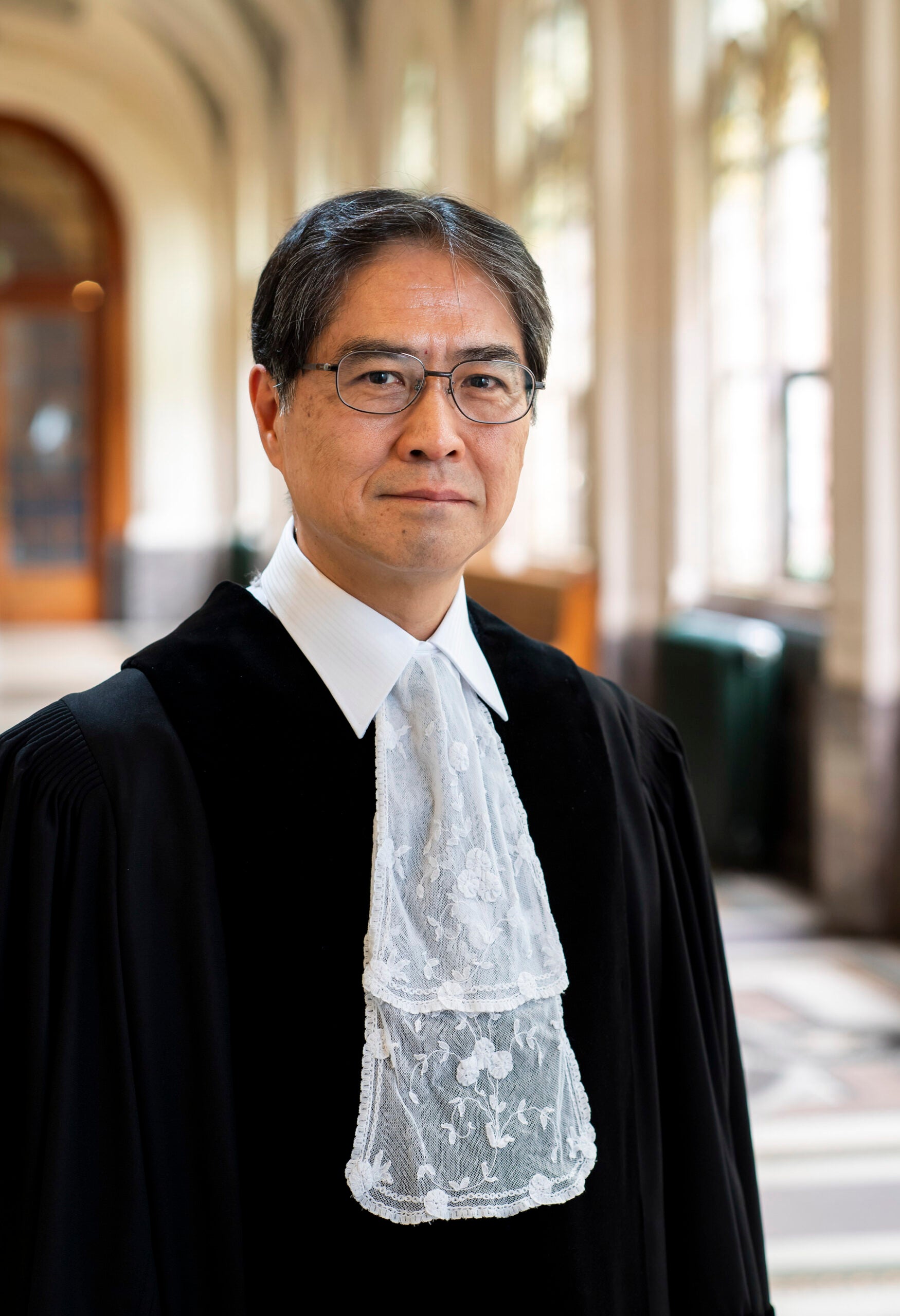On Nov. 12, Japan’s Yuji Iwasawa LL.M. ’78 was re-elected to the International Court of Justice, the U.N.’s principal judicial body, with overwhelming support from the U.N. member states. He will serve a 9-year term.
Initially elected in 2018, Iwasawa sits with 14 other judges on the court, including Nawaf Salam LL.M. ’91.
“I am extremely honored to have been re-elected as a judge at the International Court of Justice and look forward to continuing my work at this important and venerable institution,” said Iwasawa.
Before joining the court in 2018, Iwasawa was a professor of international law at the University of Tokyo graduate school. He also served as chairperson the U.N. Human Rights Committee, a group of independent experts which monitors countries’ compliance with the International Covenant on Civil and Political Rights.
Harvard Law Professor Gerald Neuman ’80, who served with Iwasawa on the U.N. Human Rights Committee, praised him as a distinguished scholar of public international law, with a profound knowledge of human rights law and its implementation in widely varying national legal systems. “He brings to the ICJ both a strong commitment to human rights and a deep understanding of the challenges of enforcing them in the present challenging times,” said Neuman, co-director of the Human Rights Program at HLS. “The world is very fortunate to have him on the court.”
In addition to chairing the U.N. Human Rights Committee, Iwasawa served as president of the Japanese Society of International Law, vice chair of the London-based International Law Association, and as judge and vice president of the Asian Development Bank Administrative Tribunal in Manila, Philippines.
Iwasawa’s publications include “Domestic Application of International Law,” “Dispute Settlement in the WTO” and “Third Parties Before International Tribunals: The ICJ and the WTO.”
While with the Human Rights Committee, Iwasawa served as a foreign adviser for the American Law Institute’s “Restatement (Fourth) of the Foreign Relations Law of the United States.” Iwasawa holds an LL.B. from the University of Tokyo Faculty of Law, an LL.M. from Harvard Law School and a S.J.D. from the University of Virginia.
Ask a World Court Judge
Q&A with Judge Yuji Iwasawa LL.M. ’78
Harvard Law Today: Tell us about the work of the International Court of Justice. What is its purpose?
Yuji Iwasawa: The International Court of Justice is an international court located in The Hague, The Netherlands, often referred to as the World Court. It is a court for the pacific settlement of disputes between states in accordance with international law. As the principal judicial organ of the United Nations, it also gives advisory opinions at the request of U.N. bodies.
HLT: Can you speak to the impact of your cases at the ICJ?
Iwasawa: Since first elected to the court in 2018, I have been involved in 13 cases. The court contributes not only to the settlement of the cases brought before it but also to the clarification and development of international law through its work.
HLT: How did your time at HLS help equip you to do this kind of work?
Iwasawa: I was an LL.M. student from 1977 to 1978. In my time as an HLS student, I took courses and seminars mostly on international law. In contrast to my LL.B. at the University of Tokyo, where I learned international law through lectures, I appreciated the focus at HLS on learning international law in action and found the case method used at HLS to be very refreshing and eye-opening.
HLT: You are an expert in international law and served as chairperson of the U.N. Human Rights Committee. How does your background in human rights come into play at the ICJ?
Iwasawa: I served as chairperson of the Human Rights Committee twice, but I consider myself as a generalist of international law. The fact that I was an academic teaching and researching various aspects of international law for more than 40 years has given me a strong grounding in the discipline, which has been extremely helpful in carrying out my duties as a judge of the ICJ.
HLT: Anything else you’d like to tell us?
Iwasawa: I remember with much fondness all the courses and seminars of international law I took at HLS. I learned so much from Professors Richard Baxter, Louis B. Sohn, Abram Chayes, and C. Clyde Ferguson, whom I owe a great deal. The friendships I fostered at HLS with students from all over the world have been a great asset as well.
